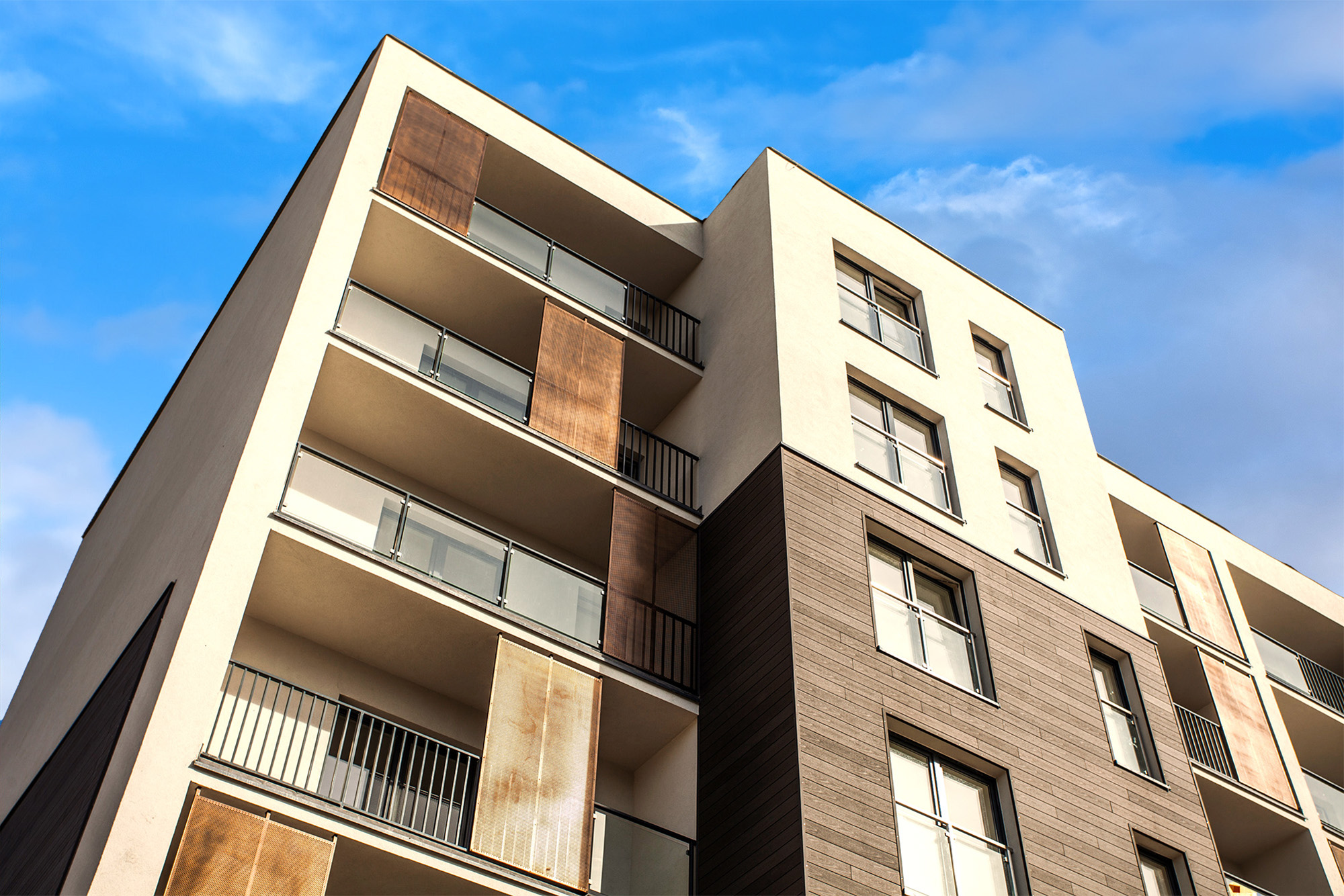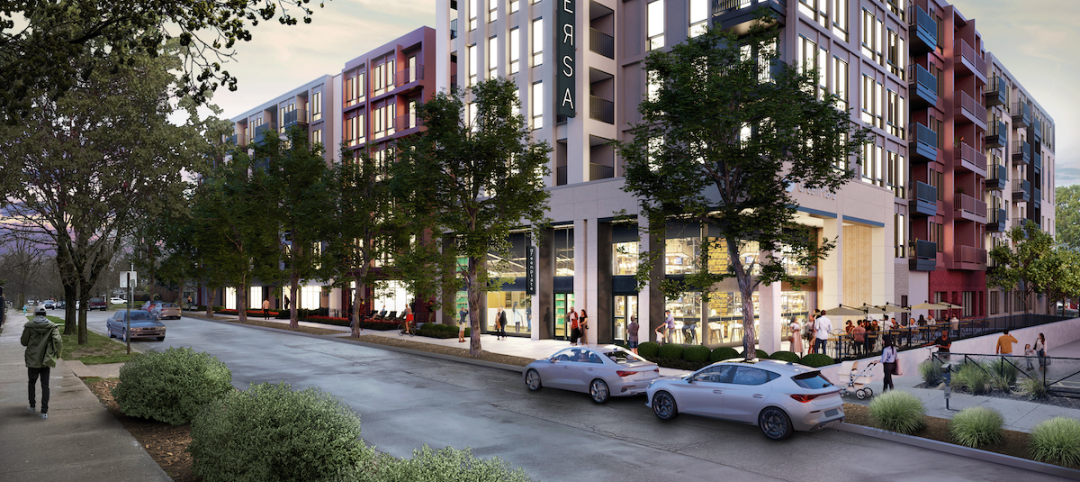Over 56 developers, operators, and investors across the country were surveyed in John Burns Research and Consulting's recently-launched Apartment Developer and Investor Survey. The November 2023 report collected two month's of data to find clarity in the multifamily market, including capital access, lease-up challenges, and the overall development pipeline.
Overall, Burns has outlined four key takeaways for developers and investors to be mindful of in 2024.
Burns Apartment Developer and Investor Survey Takeaways
1. Apartment developers anticipate a dramatic decrease in construction and new starts
As post-Covid construction has peaked, developers expect new apartment starts to slow by 20–50%.
Forty percent of developers surveyed have over 500 units currently under construction. While a surge of projects will finish by 2025, future starts are believed to slow dramatically.
Nearly all respondents have found securing financing to be increasingly difficult.
2. Investors “sidelined” as interest rates create cautious lenders
Apartment transactions have come to a halt as financing tightens and pricing uncertainty grows. Only 16% of those surveyed reported selling an apartment property in the last six months, and 70% say they are not planning to purchase in the next six months.
There was little consensus on current pricing levels. A few respondents believe their assets are undervalued, while the rest are split between seeing their assets as fairly-priced or overvalued. According to Burns, this disparity reflects the ongoing disconnect between buyers and sellers.
3. Affordability is an important factor for residents of newly opened communities
A significant factor for resident retention is affordability. The research finds that the most common reasons tenants won't renew their lease is to move into a less expensive apartment or to move in with roommates instead.
Three-quarters (75%) of respondents are averaging double-digit monthly leases at unstabilized communities as well, indicating healthy lease-up trends.
4. Thoughtful design and amenities—especially service-oriented ones—must be superior
According to Burns, developers have underscored the importance of project design and high-quality amenities. Those surveyed indicated that new communities must have amenities that are in-line, if not superior, to the competition.
Some have also begun focusing less on physical amenities like pools and parks, and more on service-oriented amenities such as concierge services.
Click here to access the entire Apartment Developer and Investor Survey.
Related Stories
Multifamily Housing | Jun 19, 2023
Adaptive reuse: 5 benefits of office-to-residential conversions
FitzGerald completed renovations on Millennium on LaSalle, a 14-story building in the heart of Chicago’s Loop. Originally built in 1902, the former office building now comprises 211 apartment units and marks LaSalle Street’s first complete office-to-residential conversion.
Urban Planning | Jun 15, 2023
Arizona limits housing projects in Phoenix area over groundwater supply concerns
Arizona will no longer grant certifications for new residential developments in Phoenix, it’s largest city, due to concerns over groundwater supply. The announcement indicates that the Phoenix area, currently the nation’s fastest-growing region in terms of population growth, will not be able to sustain its rapid growth because of limited freshwater resources.
Multifamily Housing | Jun 15, 2023
Alliance of Pittsburgh building owners slashes carbon emissions by 45%
The Pittsburgh 2030 District, an alliance of property owners in the Pittsburgh area, says that it has reduced carbon emissions by 44.8% below baseline. Begun in 2012 under the guidance of the Green Building Alliance (GBA), the Pittsburgh 2030 District encompasses more than 86 million sf of space within 556 buildings.
Industry Research | Jun 15, 2023
Exurbs and emerging suburbs having fastest population growth, says Cushman & Wakefield
Recently released county and metro-level population growth data by the U.S. Census Bureau shows that the fastest growing areas are found in exurbs and emerging suburbs.
Mixed-Use | Jun 12, 2023
Goettsch Partners completes its largest China project to date: a mixed-used, five-tower complex
Chicago-based global architecture firm Goettsch Partners (GP) recently announced the completion of its largest project in China to date: the China Resources Qianhai Center, a mixed-use complex in the Qianhai district of Shenzhen. Developed by CR Land, the project includes five towers totaling almost 472,000 square meters (4.6 million sf).
Mixed-Use | Jun 6, 2023
Public-private partnerships crucial to central business district revitalization
Central Business Districts are under pressure to keep themselves relevant as they face competition from new, vibrant mixed-use neighborhoods emerging across the world’s largest cities.
Multifamily Housing | Jun 6, 2023
Minnesota expected to adopt building code that would cut energy use by 80%
Minnesota Gov. Tim Walz is expected to soon sign a bill that would change the state’s commercial building code so that new structures would use 80% less energy when compared to a 2004 baseline standard. The legislation aims for full implementation of the new code by 2036.
Multifamily Housing | Jun 1, 2023
Income-based electric bills spark debate on whether they would harm or hurt EV and heat pump adoption
Starting in 2024, the electric bills of most Californians could be based not only on how much power they use, but also on how much money they make. Those who have higher incomes would pay more; those with lower incomes would see their electric bills decline - a concept known as income-based electric bills.
Multifamily Housing | May 30, 2023
Boston’s new stretch code requires new multifamily structures to meet Passive House building requirements
Phius certifications are expected to become more common as states and cities boost green building standards. The City of Boston recently adopted Massachusetts’s so-called opt-in building code, a set of sustainability standards that goes beyond the standard state code.
Multifamily Housing | May 30, 2023
Milhaus, Gershman Partners, and Citimark close on $70 million multifamily development in Indy
Versa will bring 233 studio and one- and two-bedroom apartments to Indianapolis's $271 million, Class-A Broad Ripple Village development enterprise.


















